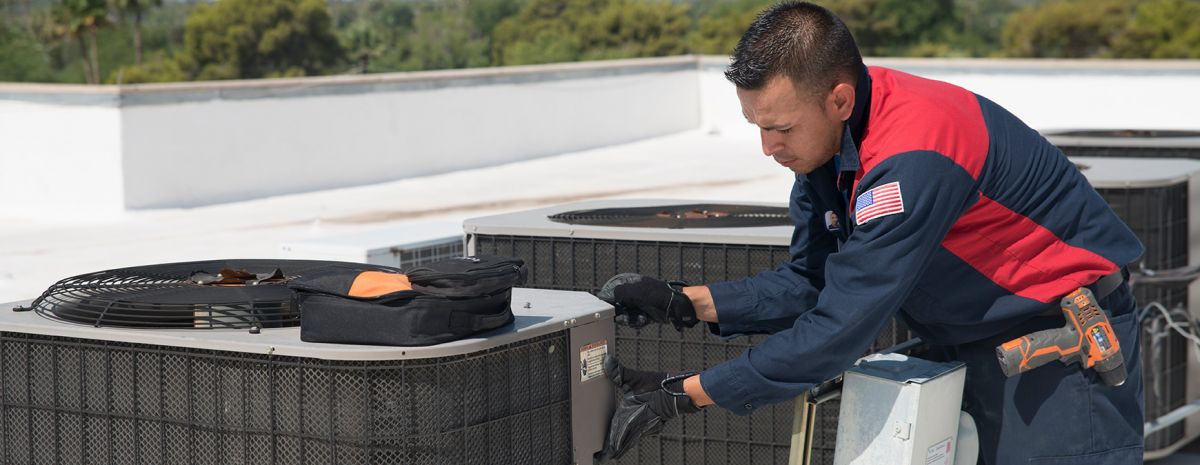RSI is a Great Training Option for Everyone
Learn more about how we can prepare you to advance your career.
HVAC/R technology is essential for the daily lives of homeowners and business owners. These systems provide temperature control through heating and cooling and improved indoor air quality via filtration.
This translates into a steady demand* for HVAC/R technicians who are responsible for installing and maintaining these crucial systems in residential, commercial, and industrial settings. This job security and high demand have encouraged a lot of people to consider a job in the HVAC/R field.
If you’re considering this career path, you’re probably wondering what kind of professional opportunities are available and what the position demands.
How many hours do HVAC techs work?
Most HVAC technicians have a full-time schedule somewhere between 30 and 40 hours per week, depending on their position and their employer.
Only a handful of techs work part-time. Most maintain traditional 9-to-5, Monday-through-Friday business hours. But there’s always the possibility of working during the evening or weekend to accommodate the schedules of clients or when HVAC emergencies strike.
Get Started on the Path to a New Career
Fill out our form to learn how we can help you change your life.
When temperatures are at their extremes during heating and cooling seasons, it’s also common for HVAC techs to work overtime and irregular hours to meet the seasonal spikes in demand.
What jobs can you get with HVAC specialization?
HVAC/R Installation Technician
HVAC/R installers focus on the installation of heating, ventilation, air conditioning, and refrigeration equipment in buildings to help clients achieve their temperature control needs.
In this role, HVAC/R technicians need to have the ability to read blueprints, think three-dimensionally, and manage heavy equipment.
HVAC/R Service Technician
In contrast to HVAC/R installers that specialize in the installation of systems, HVAC service technicians are responsible for keeping systems in working order. These experts need to have an in-depth understanding of how HVAC/R systems function so they can properly service all the different parts including electrical components, ductwork, and motors.
Refrigeration Service Technician
Refrigeration service techs understand how HVAC units function, but they work primarily on refrigeration systems.
With specialized knowledge of refrigeration units, these experts can more easily troubleshoot problems and develop solutions when compared to general HVAC techs.
They repair and service refrigeration units in a variety of contexts including homes, offices, and food-service settings.
Commercial Refrigeration Technician
Refrigeration plays a crucial role in an array of commercial settings.
Commercial refrigeration technicians are the experts tasked with keeping these critical systems fully functional and optimized. They perform many of the same duties as refrigeration techs but in shops, restaurants, and supermarkets instead of homes.
Where can I work as an HVAC/R technician?
Generally speaking, HVAC/R technicians can work in residential, commercial, or industrial settings. All types of buildings rely on HVAC/R equipment to control the temperature for various purposes.
The specifics of the equipment might vary between these different locations, but the fundamentals of HVAC technology remain consistent.
Most HVAC/R techs find work in schools, homes, offices, factories, stores, and hospitals. Some remain in a single location throughout the entire workday while others travel between several locations to perform service calls.
The exact location you end up working depends on where you get hired.
What kind of conditions do HVAC/R technicians work in?
The majority of HVAC/R techs work inside on equipment located indoors and accessible from within a building.
However, some will have to brave the elements to work outside even in poor conditions. Even technicians working inside might have to work in tight spaces without sufficient temperature control because of damaged equipment. The tough working conditions both indoors and outdoors make safety a priority in the HVAC field.
What state pays HVAC techs the most?
The U.S. Bureau of Labor Statistics expects a 5% growth in demand for HVAC techs between 2021 and 2031, which means good job opportunities for professionals in the field.
Although you can get a job as an HVAC tech anywhere in the country, some states are hiring more than others. Here are the five states with the highest demand for HVAC professionals:
- Florida
- California
- Texas
- New York
- Pennsylvania
It’s important to keep in mind that finding the best state for HVAC employment depends on a number of factors including demand, pay, upward mobility, weather, and more.
If you’re interested in becoming an HVAC/R technician, you first need to develop the necessary skills, knowledge, and qualifications to succeed in the field.
The Refrigeration School offers a comprehensive and affordable Refrigeration Technologies program that prepares you for a career as an HVAC/R tech. You can speak with an RSI team member to learn more about the program. We’re happy to answer any of your questions. Call 1-866-820-0823.
*According to BLS data Arizona employed 7,950 Heating, Air Conditioning, and Refrigeration Mechanics and Installers (499021) through May 2021 http://data.bls.gov/oes.
Additional Sources




